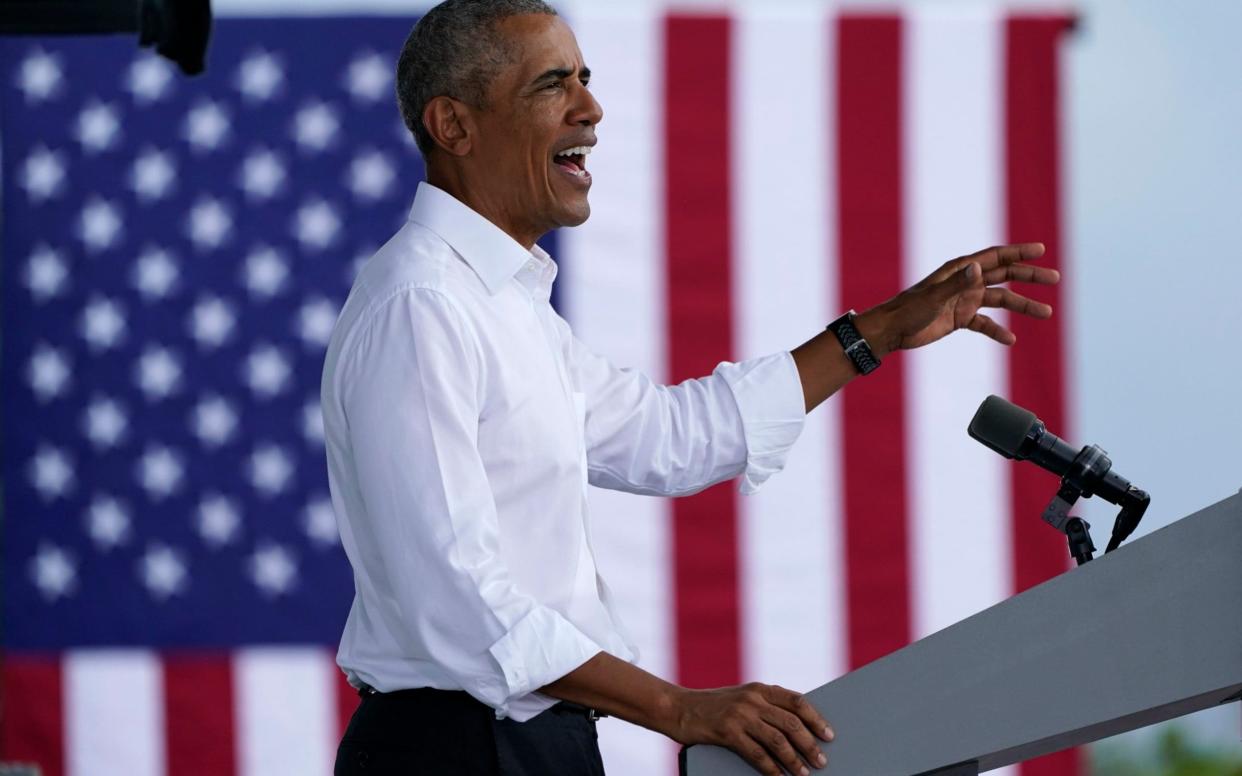Obama reveals birther conspiracy left him wondering if he could still 'connect' with voters

Barack Obama has described how relentless personal attacks during his presidency, such as the "birther" conspiracy spread by Donald Trump, made him wonder if he could still "connect" with voters.
In an extract from his new memoir, the former US president recalled the impact of the populist Tea Party movement on the country and revealed he resisted calls from his supporters to define the attacks as racist.
The "birther" conspiracy was a claim that Mr Obama was a Muslim who was born in Kenya, and therefore constitutionally ineligible to serve as president. Mr Obama, who has made clear he is a Christian, was born in Hawaii.
In the extract, published on Monday by the New Yorker, Mr Obama writes: “As a matter of principle, I didn’t believe a president should ever publicly whine about criticism from voters – it’s what you signed up for in taking the job – and I was quick to remind both reporters and friends that my white predecessors had all endured their share of vicious personal attacks and obstructionism.”
The Democrat went on to say it was hard to prejudge his detractors' motivations, but candidly confessed the personal criticisms had a significant impact on him.
“I wanted to believe that the ability to connect was still there. My wife wasn’t so sure," he writes, describing his wife Michelle's reaction after seeing a Tea Party rally on TV, with crowds holding "inflammatory slogans".
"She seized the remote and turned off the set, her expression hovering somewhere between rage and resignation," he writes.
“‘It’s a trip, isn’t it?’ she said.
“‘What is?’“
‘That they’re scared of you. Scared of us.’ She shook her head and headed for bed.”
Mr Obama has held back his memoir, A Promised Land, until after the presidential election. It is due to be published on November 17.
The bulk of the chapter published on Monday by the New Yorker retells how the Democratic president and his White House team fought to establish his signature healthcare legislation.
It also describes how his administration responded to the H1N1 flu virus outbreak in 2017 which experts at the time feared could become a major pandemic.


